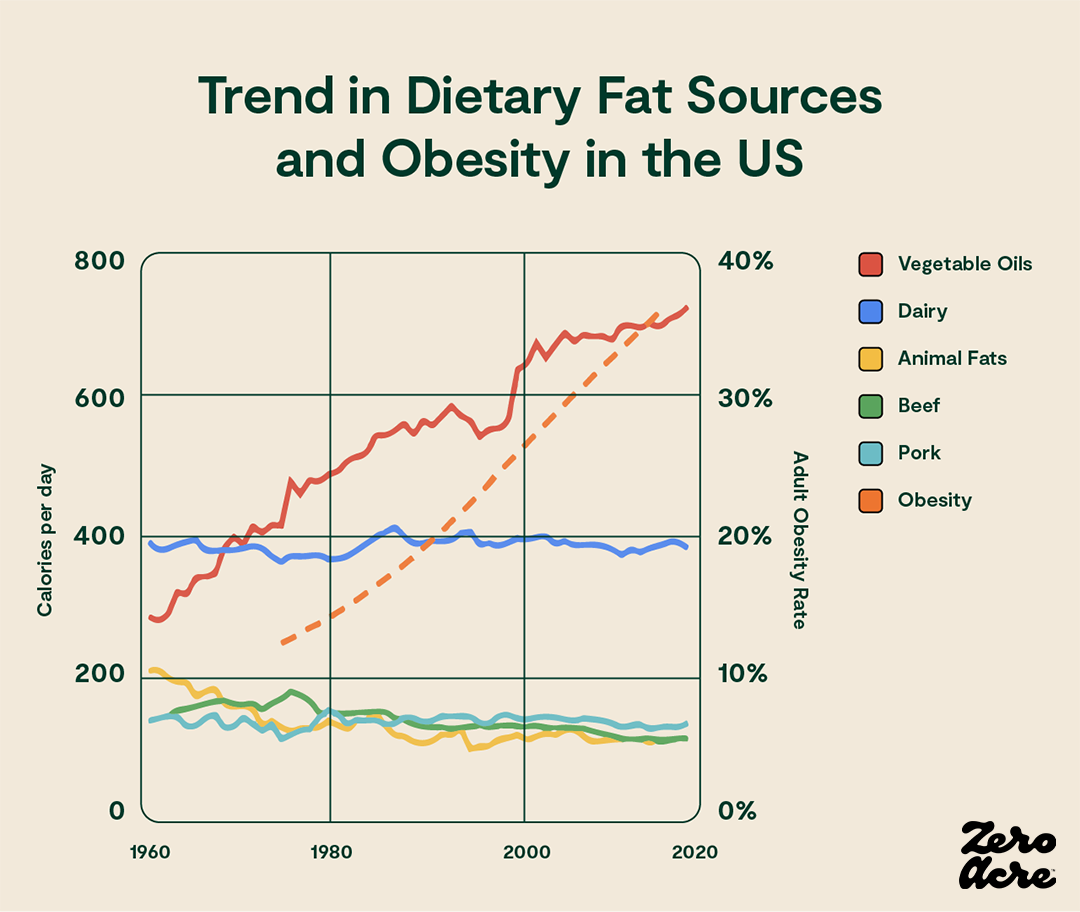Saw this article by “exfatloss”: Seed Oils explain the 8 Mysteries of Obesity. The possible link between vegetable oils and obesity is well known:

But I am pretty sure it is not seed oils. That is not to say seed oils can be ignored altogether, but far from the whole story. Such correlation is likely spurious. If this were true it would imply that diets that eliminate or minimize such oils would be huge, outlier successes and hence ‘solve’ the obesity crisis, but the evidence shows that no diet works particularly well, no matter what foods or nutrients are eliminated. Keto is sometimes assumed to be ‘better’, but the loss of initial weight tends to be water due to glycogen depletion. Long-term, keto does not seem to be better. The fact this is so hotly debated sorta proves my point. If keto were the overwhelming winner, we would not debate it; we would just do it. But because no diet works particularly well or better than other diets, hence the debate.
The problem is any food which is not a vegetable, in general, is too calorie dense, and people on diets are too hungry and will readily eat in a surplus of pretty much anything. Even whole grain organic bread, which has no oils, is still too easy to overeat. Even at my now present svelte 149 lbs, I can easily put down a whole loaf of bread in a sitting, and that is 1,300 or more calories right there. Same for meats, which are also highly calorie dense. A pack of beef jerky or salami and cheese has a lot of calories, and I can easily eat a lot of it–well over 3-4k calories between lunch, dinner, snacks, etc., which is over my ‘maintenance’. We’re not just talking chips, cola, and McDonald’s here. Do that enough times, and include other food too…and voila you will get fat.
If the graph above is correct, the obesity rate of men was 10% in 1960, and that of women was about 15%. That means the rates already went up 10-15x since the 1% from 1890. Going from that to today’s rates is only a quadrupling.
As discussed earlier, I have long maintained that the surge in obesity today can in part also be explained by obesity being underdiagnosed or ignored/overlooked in the past. Contemporary visual mediums such as TV , cinema and social media, compared to radio, puts more emphasis on appearance. Same for the growing role of health insurance, such as Medicare/Medicaid, as well as modern medicine, which necessitates precise BMI measurements for calculating premiums and dosing medications. Other overlooked factors include changing composition of demographics.